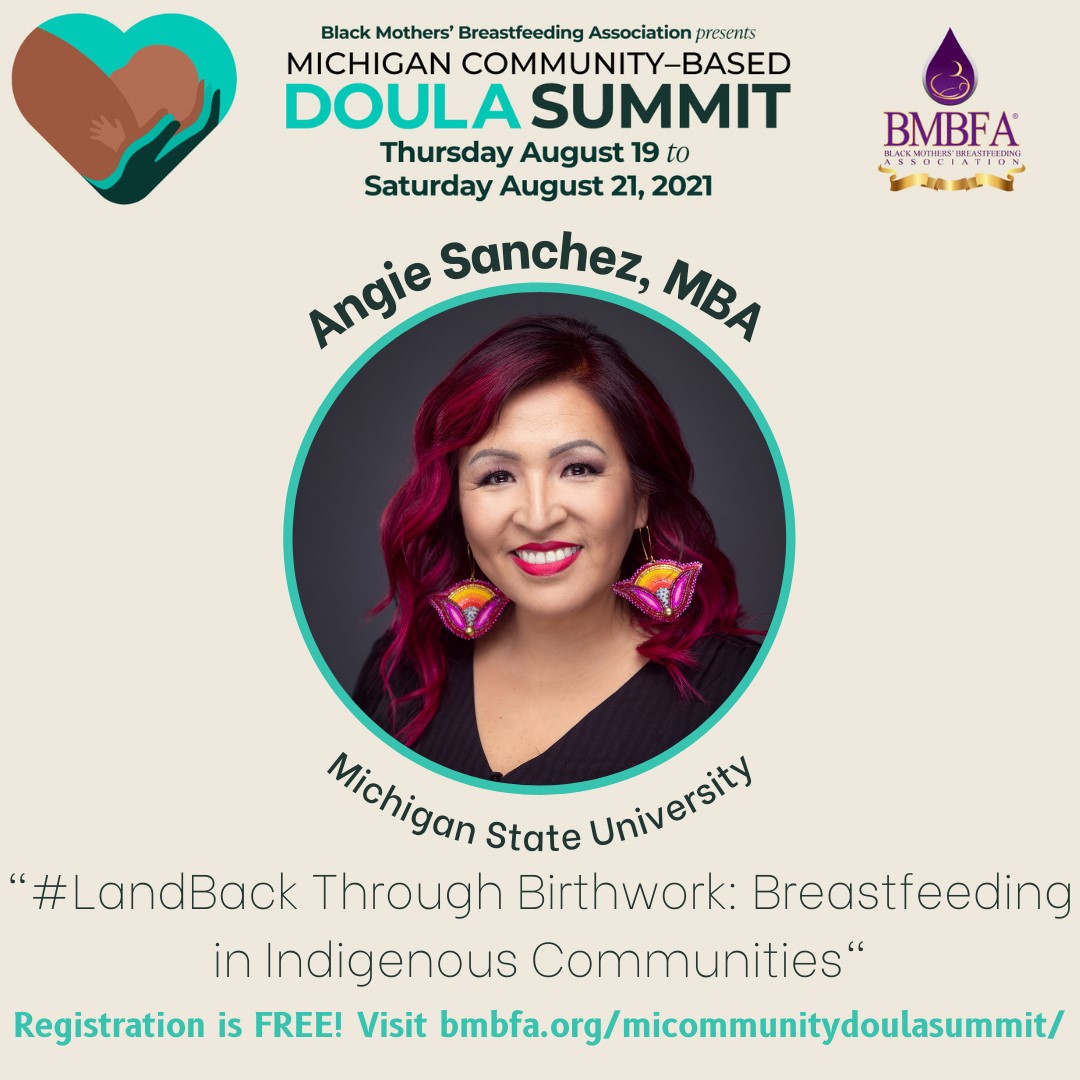Geography PhD Student Spotlights Community Strength During Michigan’s Inaugural Native Breastfeeding Week
August 15, 2021
 There is little doubt about the importance of breastfeeding. Time and again, research has provided evidence of the countless benefits infants receive as a result of breastfeeding from improved digestion, increased antibody production, reduced risk of infections and childhood obesity, lower rates of infant mortality, and fewer illnesses and hospitalizations overall to name just a few. Breastfeeding also offers faster recovery from birth and a reduced risk for postpartum hemorrhage and uterine cancer to the breastfeeding parent. But research has also indicated that significant disparities exist in providing supportive measures for breastfeeding in minority communities. To bring awareness to these issues in the state of Michigan, in addition to observing August as National Breastfeeding Month, Governor Gretchen Whitmer has declared the week of August 8-14, 2021, as Native Breastfeeding Week and the week of August 25-31 as Black Breastfeeding Week.
There is little doubt about the importance of breastfeeding. Time and again, research has provided evidence of the countless benefits infants receive as a result of breastfeeding from improved digestion, increased antibody production, reduced risk of infections and childhood obesity, lower rates of infant mortality, and fewer illnesses and hospitalizations overall to name just a few. Breastfeeding also offers faster recovery from birth and a reduced risk for postpartum hemorrhage and uterine cancer to the breastfeeding parent. But research has also indicated that significant disparities exist in providing supportive measures for breastfeeding in minority communities. To bring awareness to these issues in the state of Michigan, in addition to observing August as National Breastfeeding Month, Governor Gretchen Whitmer has declared the week of August 8-14, 2021, as Native Breastfeeding Week and the week of August 25-31 as Black Breastfeeding Week.
Angie Sanchez, a graduate student at Michigan State University, not only applauds the recognition the Governor is shining on the issue but was part of the efforts to bring Native Breastfeeding Week to fruition. Sanchez, a Ph.D. student specializing in health and medical geography in the Department of Geography, Environment, and Spatial Sciences, coordinated with many stakeholders, including members of the Michigan Breastfeeding Network and local birth workers, to make the designation a reality. “Many of us in Indigenous birth work circles have been celebrating Native Breastfeeding Week for many years. After witnessing the state designate August as Breastfeeding Month in 2018, and Black Breastfeeding Week in 2019, we felt it was time to work for the same awareness and support of Indigenous people,” said Sanchez. “We are excited that our efforts have resulted in the first official declaration from the State of Michigan for the week beginning on the second Sunday in August as Native Breastfeeding Week and encourage all those interested in helping us celebrate and support this important work.”
Sanchez first became interested in Indigenous birth work and breastfeeding after having her son. “I knew I wanted to breastfeed, but I didn’t know what I was doing, and even though breastfeeding is as second nature as breathing for some, that’s not the case for all, especially when encountering some common challenges of breastfeeding,” recalled Sanchez. “We had a lot of issues, including tongue ties and Dysphoric Milk Ejection Reflex (D-MER), and I didn’t know who to reach out to for help.” Sanchez found that although many of her immediate family members wanted to be of assistance, they did not have breastfeeding experiences of their own to share. “I could not turn to my own mother for help, and I just felt that’s not the way it should be. This is ancestral knowledge that should be passed down from one generation to the next, but due to disruptions in our communities mainly in part due to colonization efforts, we were no longer able to learn these things from our families.”
After a successful career as a business analyst, Sanchez decided to return to higher education and pursue a PhD in Geography. She has been studying health and medical geography, emphasizing Indigenous communities and access to breastfeeding support resources and other health disparities. In 2020, she was awarded a grant from the Michigan Health Endowment Fund in conjunction with her advisor Dr. Sue Grady to conduct a needs assessment and implement breastfeeding programs in six Indigenous Tribal Communities in Michigan. The grant will eventually train and certify over 150 Indigenous community members as Indigenous Breastfeeding Councilors to bring breastfeeding back as a ceremony to their communities. In addition, health care workers and other community members will be trained on how to best support breastfeeding in their communities.
In addition to her ongoing work, Sanchez is looking forward to presenting at the Michigan Community-based Doula Summit later this month, just before Black Breastfeeding Week. The Black Mothers’ Breastfeeding Association is coordinating the event, and Sanchez plans to focus her presentation around the concept of “Land back.” “For my presentation, I will be defining what Land Back means in terms of breastfeeding and birth work. Land back can mean different things to different people,” said Sanchez. “For some, it can literally mean working on getting lands back that were stolen from Indigenous communities. But for others, it means returning to our ways of life pre-contact—reclaiming ceremonies, foods, Indigenous ways of life, amongst many other things. So I frame breastfeeding and birth work in our Indigenous communities through that lens.”
For further details on the State of Michigan’s Native Breastfeeding Week proclamation, please visit https://bit.ly/37yLCYJ.

